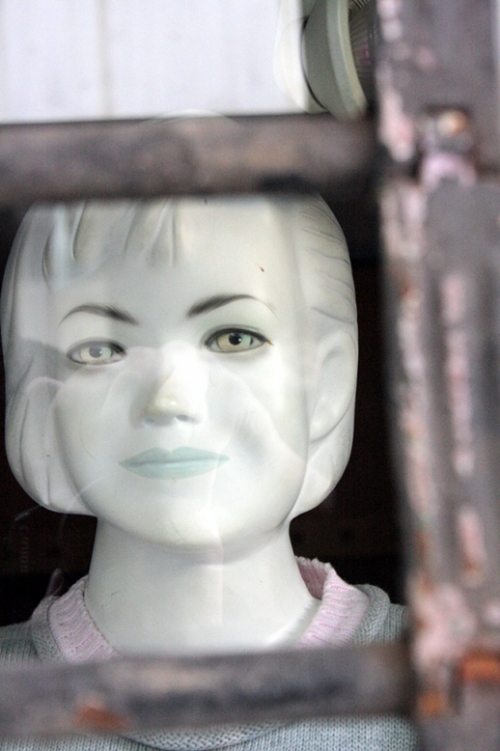
Last night I heard the screaming
Loud voices behind the wall
Another sleepless night for me
Won’t do no good to call the police
Always come late, if they come at all
Every time I hear the loud, painful wailing echo out from the apartment block across from my flat, Tracy Chapman’s haunting words float through my head.
When you hear a woman’s piercing screams punctuated by a man’s hoarse yell, you know that they are not merely involved in the arguments that all couples experience. You know that something far darker is at hand; you know you are hearing the soundtrack of domestic violence.
I have heard this screaming several times over the past year and a half. And every time I do, I think, damn, I should really be doing something to stop this. I should try and help that woman. I focus on the noise and try to figure out which flat it is coming from. but in the wide space surrounded by several buildings, the screams are echoed and reverberated of many walls, and it is difficult to tell.
As I look around I also see other people standing out on their balconies, also listening to the sharp cries that float in the heavy air around us. Some twist their heads up down, also trying to locate the source of the agony; others stare directly ahead of them, perhaps already aware of the location of that room of pain and not prepared to directly acknowledge it.
And as we all stand there, listening, I deplore myself for still doing nothing, for turning into just another voyeur on this hot summer evening. My inaction renders me just another perversely curious and passive spectator to the drama being played out in the shadows near us. I should act, I need to act.
But what can I do? I think of calling the darak, of requesting some sort of intervention to save that poor woman and punish that brutal monster who makes her weep. But at the same time, I know that there is no law criminalising domestic violence in this country. Therefore, even if I were to call the police and lodge a complaint, I’m pretty sure that nothing would come of it. What other options do I have? Going over there and saving her myself? Not realistic.
And by the time I’ve run through the narrow options in my mind, I realise that the screams have stopped, only to be replaced by soft sobs. And the balconies are empty. And once again, I’ve done nothing. I am part of this collective inaction, I now inhabit this refusal to acknowledge and act against domestic violence.
The last time I heard the screaming, a journalist friend of mine was over. Again, we both debated what we could do. She was livid, and I had to practically physically retrain her skinny frame from marching out into the street, knocking on doors till she found the culprit and knocking him out with a frying pan. No, I said, that will not make the situation any better.
Ok, she said, let’s call Kafa’s violence hotline. She dialled the number, got connected to someone and explained the situation: we can hear spine-chilling screams coming from an apartment nearby. What should we do about it? Can you help us? The voice on the other end explained that no, they could not do anything, that they could only act if they were contacted directly by the person suffering from the violence. My friend hung up, looking hopeless, just as another ear-splitting scream broke through the night. What are we supposed to do now? Go round the neighbourhood sticking Kafa’s stickers with the hotline to every door? Why do all the possible avenues for finding this woman support seem to be closed off?
The next day, I was speaking about the incident with a Lebanese colleague. “You should have called the darak”, she said. Her argument was that even if there is no legal framework that means they can intervene, by making the point of calling them and letting them know that this is behaviour that you, as a member of the community, will not accept, you are acting. She said that regardless of the potential for police intervention, I should have made that call in order to add my voice to the rising chorus that is taking a stand against domestic violence in this country.
I realised that she was right. A lack of legal mechanisms for redress, or public apathy, or any other structural obstacle should never lead to personal inaction. It is, in fact, only by choosing to raise our voices against the backdrop of such publicly sanctioned silences that any justice can be achieved. And, despite my commitment to achieving gender equality by taking a stand against all forms of gender-based violence, I realised that I myself had forgotten this and temporarily succumbed to apathy.
My own forgetting highlights the need for broader and sustained group action. We, as a feminist movement, need to find ways of constantly encouraging people in communities to not be disillusioned by the legal status quo and to not continue to be silent when they hear the screams (perhaps a guerrilla stickering of the neighbourhood with the hotline number is, in fact, in order?). Because although there are voices arguing that greater change can be achieved through individual action and refusal, and although these voices are growing louder, they are still fighting an upward battle against the dominant norms and structures constantly produced through insidious patriarchy.
So I will start at home. The next time I hear those screams, I pledge not to forget. I pledge to raise my voice, to the police and to Kafa again, even if to just leave my mark as a statistic. And I will speak and write and unite with others and, basically, do everything in my power to ensure that the screams of domestic violence, or any other gender-based violence, are never met with silence.
Publisher:
Section:
Category:






